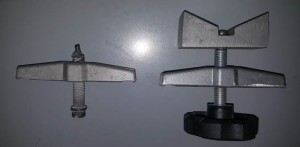Ounce of Prevention is Worth a Pound of Cure
Posted on June 16th, 2016 in Electrical Preventive Maintenance Services | No Comments »
MIDWEST Field Services was at a manufacturing facility in South Central Wisconsin performing inspections and testing of 15KV load break switches along with 480V indoor substations. The services were being performed as part of scheduled electrical maintenance services. During our inspection of the outdoor 15KV load break switches it was discovered that one of the fuse holder assemblies was not installed correctly resulting in excessive heat being generated and the fuse holder overheating to the point that it melted down and nearly fell out of the fuse assembly. Had that occurred the 15KV fuse would have likely fell out of the holder resulting in a single phase condition and the potential for damage to the downstream equipment. After a hard-focused inspection of the damaged fuse holder assembly it was determined that the threaded assembly was either cross-threaded or the threads in the cast part were defective leading to the assembly being hard to turn which one may have mistaken for it being tightened properly. Catastrophic failure would have occurred if this deficiency hadn’t been corrected and was certain to occur if the regularly scheduled electrical maintenance services had not been performed. In conclusion, we believe the old adage an ounce of prevention is worth a pound of cure holds true here because the cost of performing regularly scheduled electrical maintenance services was far less than the cost of damaged equipment as a result of the catastrophic failure to this fuse holder assembly, fuse(s), switches and associated switchgear. Add those costs with the cost due to the loss of production resulting from the unscheduled outage would result in what is known in today’s production world as unacceptable. The photo below shows the damaged part along with a complete part to show how much damage occurred.
